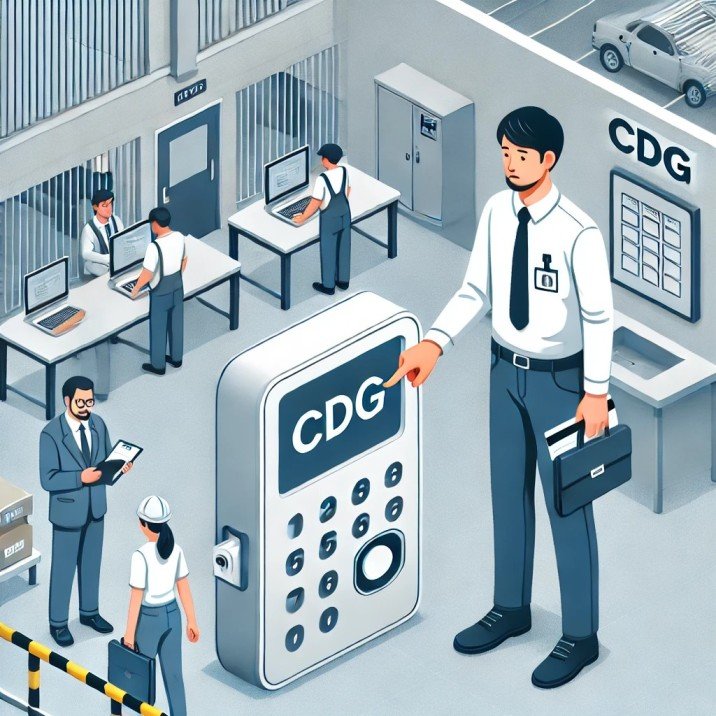How Long Does a Social Compliance Audit Take? Understanding the Timeline and What to Expect
In today’s fast-paced business environment, time is a critical factor in every aspect of operations. When it comes to social compliance audits, businesses often ask, “How long will this process take?” Understanding the timeline of a social compliance audit can help your company better plan and integrate these essential evaluations into your operations. In this blog post, we’ll explore the factors that influence the duration of a social compliance audit and provide insights into what you can expect during the process.
Introduction: The Need for Timely Social Compliance Audits
As companies strive to maintain ethical standards and meet regulatory requirements, social compliance audits have become a vital part of ensuring that operations and supply chains adhere to labor, environmental, and ethical guidelines. While the benefits of these audits are clear, understanding the time commitment involved is crucial for effective planning and execution. Whether you’re new to social compliance audits or looking to streamline your current processes, knowing how long these audits take can help you manage resources more efficiently.
Factors That Influence the Duration of a Social Compliance Audit
The length of a social compliance audit can vary depending on several factors. Here’s a breakdown of the key elements that influence the timeline:
1. Scope of the Audit
The more comprehensive the audit, the longer it will take. For instance, an audit that covers multiple aspects of social compliance—such as labor practices, health and safety, environmental impact, and ethical standards—will naturally require more time than a more narrowly focused review.
Practical Tip: Before beginning the audit, clearly define the scope with your audit provider. This will help you set realistic expectations for the timeline and ensure that all critical areas are covered.
2. Size and Complexity of the Business
Larger companies with multiple locations or complex supply chains will require more time for a thorough audit. Each site or supplier may need to be evaluated individually, which can extend the duration of the audit process.
Example: A global manufacturing company with production facilities in several countries might require several weeks or even months to complete a full social compliance audit, depending on the number of sites and the complexity of their operations.
3. Preparation and Documentation
The speed at which a social compliance audit is conducted often depends on the company’s level of preparedness. Having all necessary documents, records, and data readily available can significantly speed up the process. Conversely, if the audit team has to spend time gathering information, the audit will take longer.
Practical Tip: Before the audit begins, work with your internal teams to gather and organize all relevant documents, such as labor contracts, safety records, environmental reports, and training logs. This preparation can help expedite the audit process.
4. Type of Audit: Onsite vs. Remote
Onsite audits generally take longer than remote audits because they involve physical inspections of facilities, interviews with employees, and direct observation of working conditions. Remote audits, while faster, may not provide the same level of detail and insight.
Real-World Application: Due to travel restrictions during the COVID-19 pandemic, many companies shifted to remote audits. While this approach allowed businesses to maintain compliance, it also highlighted the importance of onsite visits for a more thorough evaluation.
5. Follow-Up and Corrective Actions
If the audit identifies areas of non-compliance, additional time will be needed to implement corrective actions and conduct follow-up assessments. The time required for this phase will depend on the nature of the issues identified and the company’s responsiveness in addressing them.
Example: If an audit uncovers safety violations at a factory, the company will need to take corrective measures, which could involve significant changes to equipment, training, or procedures. The audit process will only be considered complete once these actions have been verified.
What to Expect During a Social Compliance Audit
Understanding the general flow of a social compliance audit can help you better anticipate the timeline. Here’s a typical process:
- Initial Consultation and Planning (1-2 Weeks): The audit begins with a consultation between the company and the audit provider to discuss the scope, objectives, and logistics of the audit.
- Document Review and Pre-Audit Preparation (1-2 Weeks): The audit team reviews relevant documents and prepares for the onsite or remote assessment.
- Onsite/Remote Audit (1-5 Days): Depending on the complexity and scope, the actual audit can take anywhere from a single day to several days.
- Report Preparation (1-3 Weeks): After the audit, the team compiles their findings into a comprehensive report, detailing areas of compliance and non-compliance.
- Corrective Actions and Follow-Up (Variable): If issues are identified, the company will need to address them, with the audit team conducting follow-up assessments as necessary.
Planning for a Successful Social Compliance Audit
While the timeline for a social compliance audit can vary based on multiple factors, understanding these elements can help you better plan and allocate resources. Being well-prepared, clearly defining the scope, and working with an experienced audit provider like CDG can help streamline the process and ensure that your business meets its social compliance obligations efficiently.



